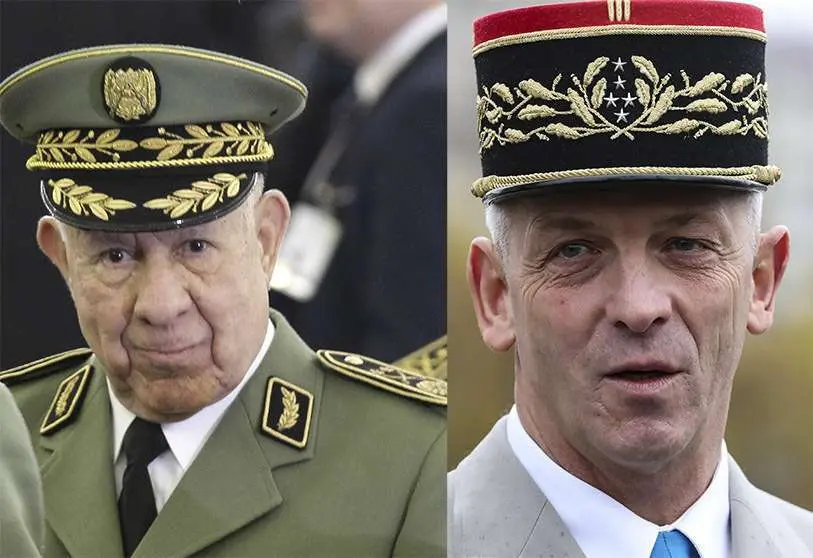Paris - Algiers: neither with you nor without you

The game of "Neither with you nor without you" continues between Paris and Algiers. Algeria cancelled the visit of French Prime Minister Jean Castex on the occasion of the Franco-Algerian High-Level Intergovernmental Committee (CIHN). The reason was that the size of the French delegation did not meet current health standards. Algiers wanted to reduce this committee to three members of the government, which Paris did not consider appropriate.
If this argument seemed fallacious to some, it is worth considering and specifying that the French visitors are not only members of the government. Algiers fears most of all the journalists accompanying this official visit. The French media are Al-Mouradia's bête noire (black sheep) and some media and journalists are blacklisted and banned.
Algeria, long mired in political turmoil, has been the subject of French media coverage in favour of Hirak, the peaceful protest movement that has been shaking the country for two years and led to the resignation of the incumbent president, Abdelaziz Bouteflika, who wanted to run for a fifth term.
Last September, the French television channel M6 was questioned by Algiers following the production and broadcast of a documentary by the magazine Enquête exclusive, under the title "Algeria: the country of all revolts". The report provoked an uproar among Algerian officials, whose comments were considered unhealthy and out of touch with the reality of the country.
The documentary was filmed clandestinely and without prior authorisation from the Algerian authorities, who, feeling deceived, had promised reprisals. Could it be time for sanctions?
For some, the Sahara issue and the political conflict with Morocco are at the root of the current discord between Algiers and Paris. The former Spanish colony under Moroccan control is the red line that Algiers has drawn for several decades. Algeria, a fervent supporter of the Polisario Front, did not appreciate the decision by President Emmanuel Macron's party, La République en Marche, to set up a support branch in Dakhla. Algiers considers Jean-Yves Le Drian's statements as a "provocation", underlining "France considers the Moroccan Autonomy Plan as a basis for serious and credible discussions". However, France's position on this issue has always been the same. It is more a structural position than a conjunctural fact. So what has changed and is there really any reason to worry about relations between the two countries?
Certainly not. Relations between Algeria and France evolve from stormy to clear, sometimes dictated by moods and egos, sometimes by economic and political interests, and the current rhetoric is nothing new.
But are the two countries doomed to be enemies forever? Labour Minister Hachemi Djaâboub seems convinced of it. He described France as a "traditional and eternal enemy". For its part, Paris saw no point in commenting on this statement.
While politicians are at each other's throats, François Lecointre, chief of staff of the French armed forces, was received in Algiers by his Algerian counterpart Said Chengriha to discuss stability in the region and military cooperation.
In a press release, the new Algerian strongman does not dwell on the partnership, but on the issues causing problems, stating at length that the question of the former French nuclear test sites was raised again, "for the definitive management of the operations to rehabilitate the Reggane and In Ekker sites". Chengriha reiterated his request to France for access to "topographical maps making it possible to locate the hitherto undiscovered burial areas of contaminated, radioactive or chemical waste".
After years of silence, the issue of French nuclear energy in Algeria and its serious consequences are increasingly returning to the public and political sphere, as the wrongdoings remain relevant.
Adding to this painful dispute are the hostilities triggered last February by historian Benjamin Stora's report on the Algerian war. A commission from the Elysée that was meant to soothe memories, but evidently did not achieve the desired objective.
At a time when Algiers is waiting for an apology from France, the dialectic of repentance is not part of the Elysée's calendar.
Emmanuel Macron is playing a balancing act between the formal rejection of official apologies and agreed symbolic gestures. Last July, the French president handed over 24 skulls of nationalist fighters killed at the beginning of French colonisation. More recently, the responsibility of the French army and the systematic torture used during the Algerian war, especially in the assassination of the lawyer Ali Boumendjel in 1957, has been acknowledged. If the light has been shed on the liquidation of the nationalist leader, many Algerians are waiting for the truth about their disappeared and the question of memory between Algeria and France crystallises all passions, the rest is just current affairs...

